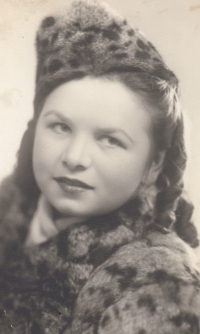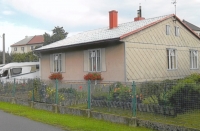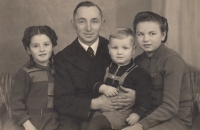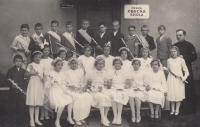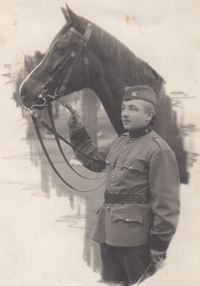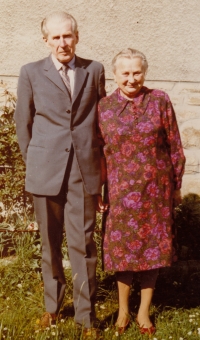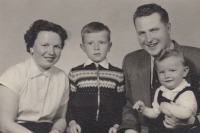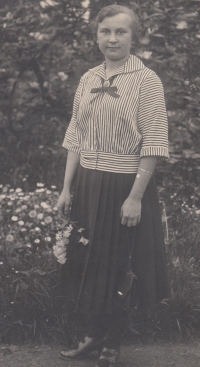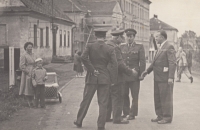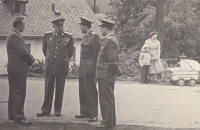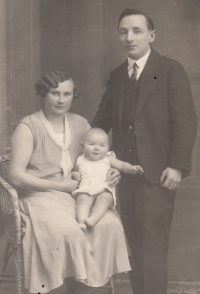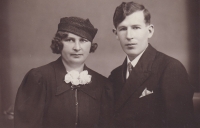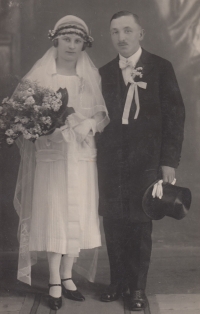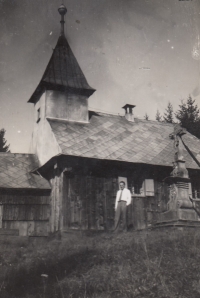She wanted to be a teacher, but she had to work in a textile factory
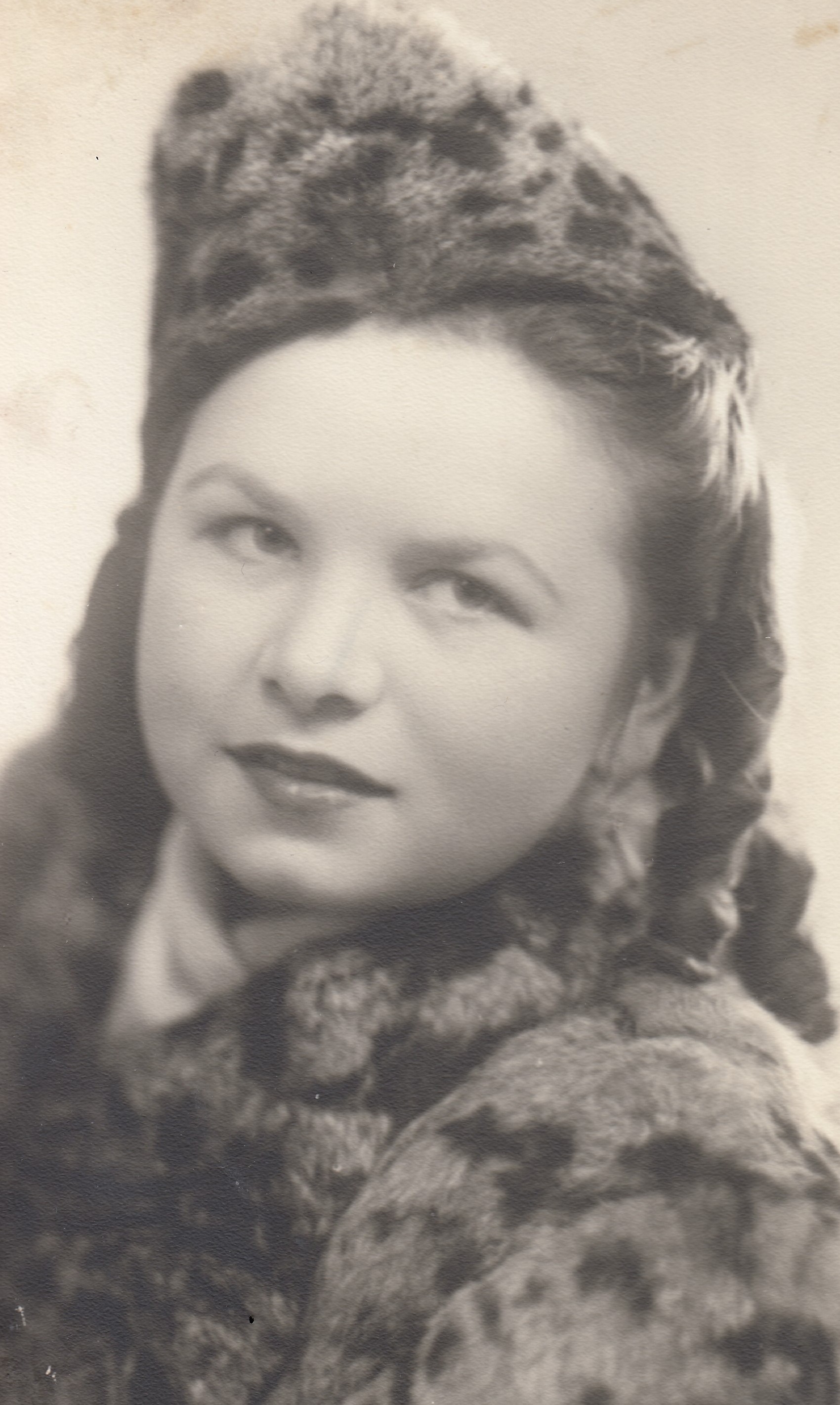
Download image
Editha Krejčová was born on August 23, 1930 in Hanušovice into a German family. Father Jindřich Wurst (1902–1944) was a glazier, mother Berta (1904–1982) helped him in the family business. When Editha was four years old, her parents divorced. They both had new relationships, from which two children were born to the father and son to the mother. The mother married Czech Dominik Macek and they moved to Červená Voda. Editha spent the war with her mother and stepbrother in Olomouc, where her stepfather was transferred as a postmaster. However, he was totally deployed in Germany for two years, so they stayed in Olomouc on their own. The children were hungry and sick from hunger. Father Jindřich Wurst had to enlist at the very beginning of the war and never returned. After the war, Editha returned to Červená Voda, and the year after the war was the worst of her life. Initially, German women had to hide from Soviet soldiers. She wanted to go to study and become a teacher, but as a German she could not, so she started cleaning at the local hospital. In October 1946, the vast majority of Červená Voda residents, including all of Edith’s relatives (except her mother), left for Germany. She also wanted to leave because she didn’t see a good perspective here, but her changed her mind. Her stepfather got her confirmation from the village that she was staying in Czechoslovakia so that she would not have to face the discriminatory behavior of some people. When she left her cleaning job, she joined the Perla Červená Voda textile factory, where she worked all her life. In 1952 she married Vincenc Krejčí (1927–2011) and in 1952 and 1958 they had two sons. Editha went to see her relatives in Germany every four years. She was interrogated by the StB each time she returned. The younger son emigrated to Germany in the summer of 1989. A weight was lifted from the whole family’s hearts thanks to the revolutionary changes of November 1989, because they were finally able to resume normal contact. In 2021 she lived in Králíky.
